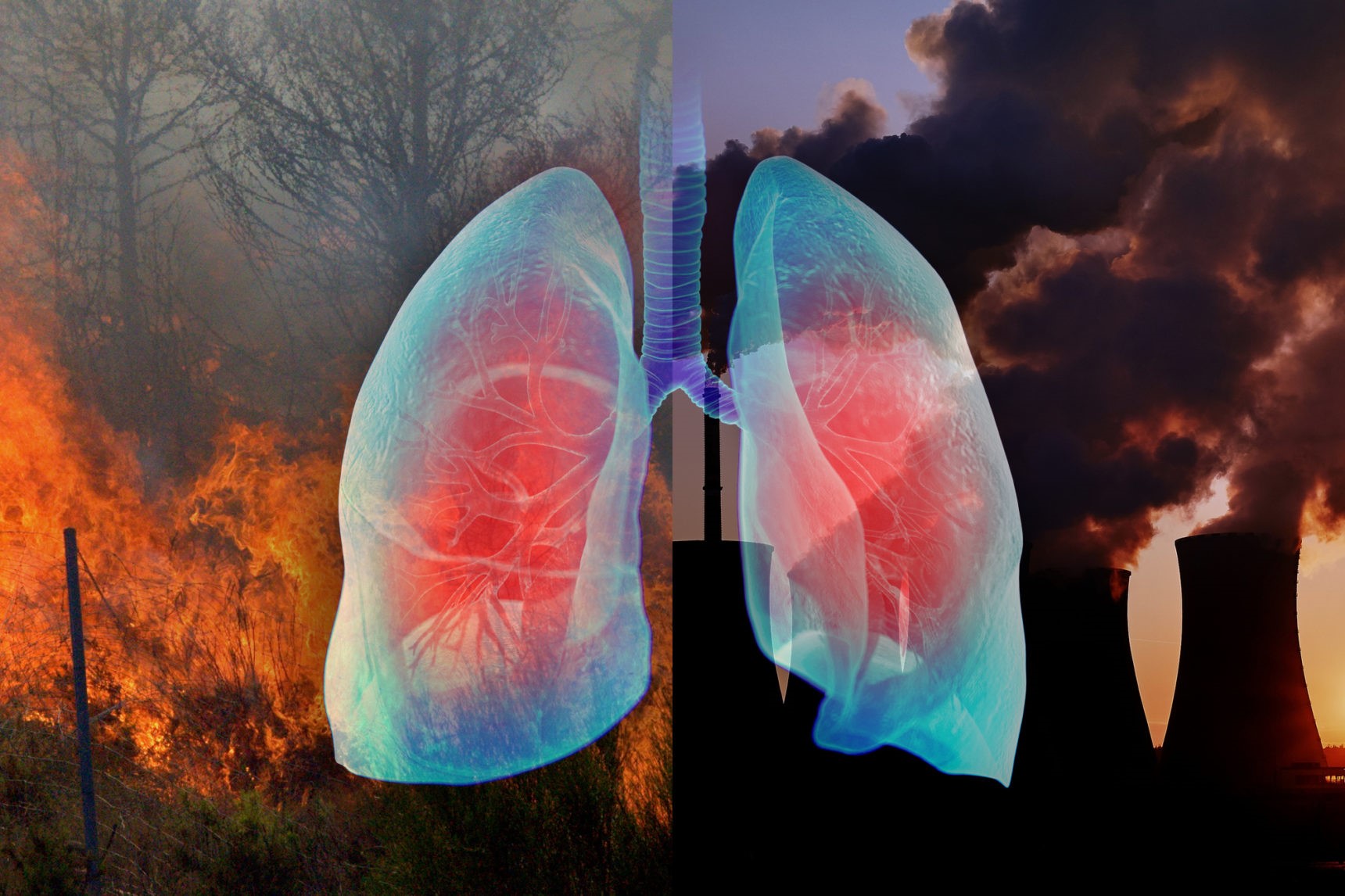Air pollution has long been a topic of concern for environmentalists, policymakers, and public health officials. However, recent studies have shed new light on the profound impact that air pollution has on human health, revealing alarming trends and emphasizing the urgent need for action. This article delves into the latest findings on the health implications of air pollution, exploring the mechanisms through which pollutants affect the body and highlighting the populations most at risk.
Understanding Air Pollution
Air pollution consists of a complex mixture of gases, particulate matter (PM), and biological molecules that can harm human health. The primary pollutants include:
- Particulate Matter (PM2.5 and PM10): These tiny particles can penetrate deep into the lungs and even enter the bloodstream.
- Nitrogen Dioxide (NO2): A gas primarily produced from road traffic and other combustion processes.
- Sulfur Dioxide (SO2): Emitted from fossil fuel combustion at power plants and other industrial processes.
- Ozone (O3): A secondary pollutant formed by chemical reactions between volatile organic compounds (VOCs) and nitrogen oxides (NOx) in the presence of sunlight.
- Carbon Monoxide (CO): A colorless, odorless gas resulting from incomplete combustion of fossil fuels.
The Health Effects of Air Pollution
Respiratory Diseases
One of the most well-documented impacts of air pollution is its effect on respiratory health. Fine particulate matter (PM2.5) and ground-level ozone are particularly harmful. Inhalation of these pollutants can lead to:
- Asthma: Exposure to high levels of air pollution can trigger asthma attacks and exacerbate symptoms in individuals with the condition.
- Chronic Obstructive Pulmonary Disease (COPD): Long-term exposure to pollutants like NO2 and PM2.5 can contribute to the development and progression of COPD.
- Lung Cancer: There is a significant body of evidence linking long-term exposure to air pollution, particularly PM2.5, with an increased risk of lung cancer.
Cardiovascular Diseases
Recent studies have shown that air pollution is not just a respiratory issue but also a major cardiovascular risk factor. Pollutants can cause inflammation in the body, leading to:
- Heart Attacks: Short-term exposure to high levels of air pollution can trigger heart attacks in susceptible individuals.
- Stroke: Long-term exposure to pollutants has been linked to an increased risk of stroke.
- Hypertension: Air pollution can contribute to the development of high blood pressure, which is a significant risk factor for heart disease and stroke.

Neurological Effects
Emerging research has started to uncover the impact of air pollution on the brain. Pollutants can cross the blood-brain barrier, leading to:
- Cognitive Decline: Long-term exposure to air pollution has been associated with an increased risk of cognitive decline and dementia.
- Mental Health Issues: There is growing evidence linking air pollution to mental health disorders such as depression and anxiety.
Impact on Children and Pregnant Women
Children and pregnant women are particularly vulnerable to the adverse effects of air pollution. For children, exposure to pollutants can lead to:
- Developmental Issues: Air pollution can affect lung development, leading to reduced lung function and increased susceptibility to respiratory diseases.
- Behavioral Problems: Some studies have found links between air pollution exposure and behavioral issues in children, including attention deficit hyperactivity disorder (ADHD).
For pregnant women, exposure to high levels of air pollution can result in:
- Preterm Birth: There is a strong association between air pollution and preterm birth, which can have long-term health implications for the child.
- Low Birth Weight: Exposure to pollutants during pregnancy has been linked to low birth weight, which is a risk factor for various health issues later in life.
Mechanisms of Harm
The exact mechanisms through which air pollution affects health are complex and multifaceted. Some of the primary pathways include:
- Oxidative Stress: Pollutants can generate free radicals, leading to oxidative stress and inflammation in the body.
- Inflammation: Chronic exposure to pollutants can cause systemic inflammation, which is a key factor in many chronic diseases.
- Endothelial Dysfunction: Air pollution can impair the function of the endothelium, the inner lining of blood vessels, leading to cardiovascular problems.
- Epigenetic Changes: Emerging research suggests that air pollution can cause changes in gene expression, which may contribute to various health issues.
Populations at Risk
While air pollution affects everyone, certain populations are more vulnerable to its adverse effects. These include:
- Children and the Elderly: Due to their developing and aging bodies, respectively, children and the elderly are more susceptible to the harmful effects of pollutants.
- People with Preexisting Conditions: Individuals with respiratory or cardiovascular diseases are at higher risk of experiencing severe health effects from air pollution.
- Low-Income Communities: These communities often live in areas with higher levels of pollution and have less access to healthcare, making them more vulnerable.
Policy and Mitigation Strategies
The new findings on the health impacts of air pollution underscore the need for robust policy measures and effective mitigation strategies. Some of the key approaches include:
- Regulation of Emissions: Stricter regulations on emissions from vehicles, industrial processes, and power plants can significantly reduce air pollution levels.
- Promotion of Clean Energy: Transitioning to renewable energy sources can help reduce the reliance on fossil fuels, thereby decreasing air pollution.
- Urban Planning: Designing cities to reduce traffic congestion and promote green spaces can improve air quality.
- Public Awareness Campaigns: Educating the public about the health risks of air pollution and ways to minimize exposure can help protect vulnerable populations.
Conclusion
The new findings on the impact of air pollution on health highlight the urgent need for action. Air pollution is not just an environmental issue but a significant public health concern that affects millions of people worldwide. By understanding the mechanisms through which pollutants harm the body and identifying the populations most at risk, we can develop targeted strategies to mitigate these effects and protect public health. As research continues to evolve, it is crucial that policymakers, healthcare providers, and the public stay informed and take proactive steps to address this pressing issue.




